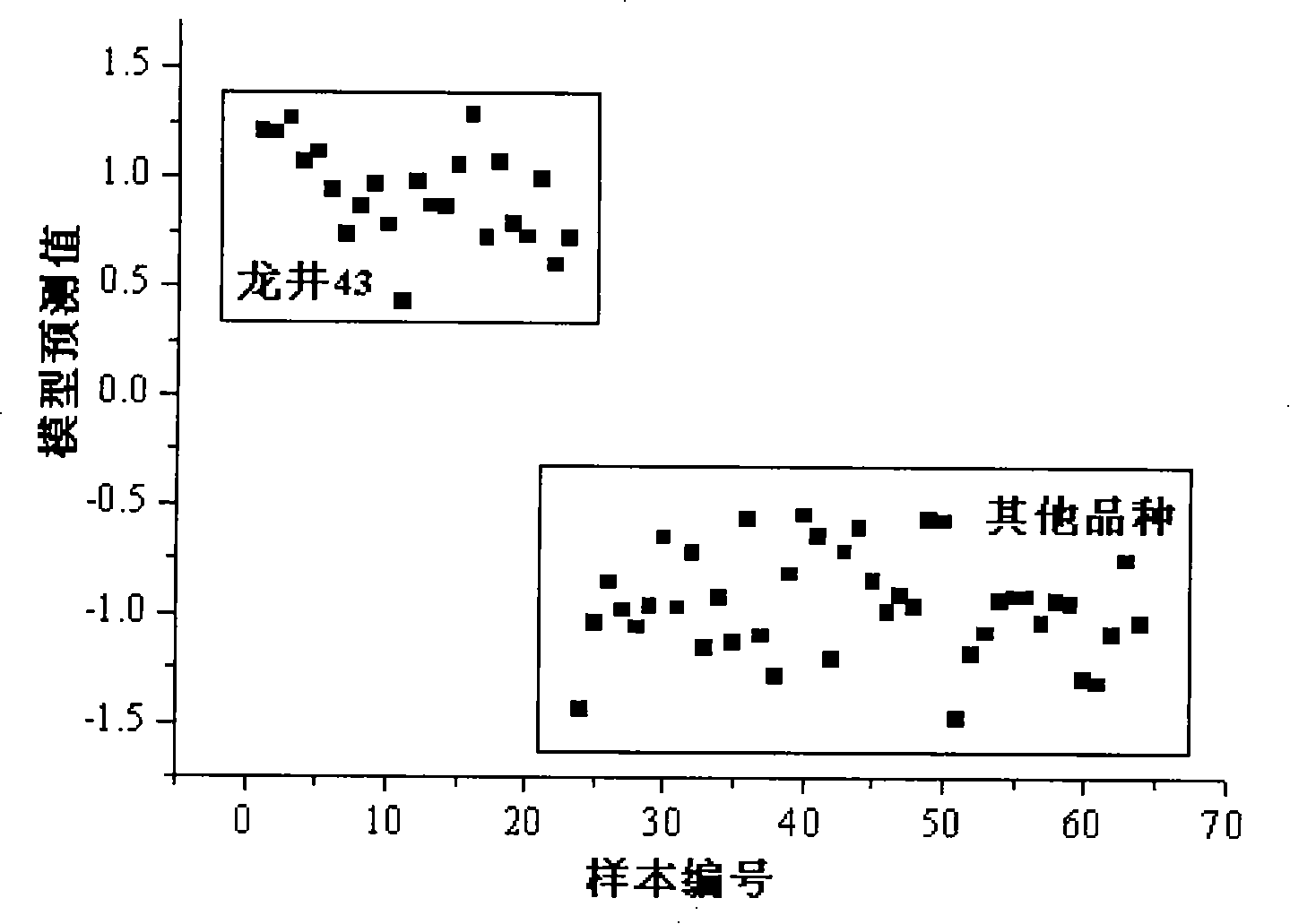Method for recognizing process raw material varieties of product tea
A technology for processing raw materials and identification methods, which is applied in the preparation of samples for testing, analysis of materials, and material analysis by optical means. effect used
- Summary
- Abstract
- Description
- Claims
- Application Information
AI Technical Summary
Problems solved by technology
Method used
Image
Examples
Embodiment 1
[0014] The identification model of Longjing 43 varieties established was used to identify 11 finished teas made of Longjing 43 as raw materials outside the calibration sample. The specific results are described as follows:
[0015] 1. Pretreatment of samples
[0016] The sample is pulverized. The specific process is: weigh about 20g of tea sample, put it into a traditional Chinese medicine pulverizer (about 20000r / min) and pulverize it for about 30s, then pass the pulverized powder through a 40-mesh sieve, and then accurately weigh it. Take 10g as the near-infrared analysis material.
[0017] 2. Acquisition of sample spectra
[0018] The near-infrared spectrum of the pulverized sample was collected on an IFS 28 / N (Bruker, Germany) near-infrared spectrometer, the random software was: Opus Quant 2, and the collection mode was absorption spectrum. The spectrum is the average value of 64 scans, and the scanning area is 10000-3500cm -1 . The data points are separated by 3.857cm...
Embodiment 2
[0026] The established Longjing 43 variety recognition model was used to identify the finished tea made from 20 other varieties (non-Longjing 43) other than the calibration sample, and the specific results are described as follows:
[0027] 1. Pretreatment of samples
[0028] The sample is pulverized. The specific process is: weigh about 20g of tea sample, put it into a traditional Chinese medicine pulverizer (about 20000r / min) and pulverize it for about 30s, then pass the pulverized powder through a 40-mesh sieve, and then accurately weigh it. Take 10g as the near-infrared analysis material.
[0029] 2. Acquisition of sample spectra
[0030] The near-infrared spectrum of the pulverized sample was collected on an IFS 28 / N (Bruker, Germany) near-infrared spectrometer, the random software was: Opus Quant 2, and the collection mode was absorption spectrum. The spectrum is the average value of 64 scans, and the scanning area is 10000-3500cm -1 . The data points are separated b...
PUM
 Login to View More
Login to View More Abstract
Description
Claims
Application Information
 Login to View More
Login to View More - R&D
- Intellectual Property
- Life Sciences
- Materials
- Tech Scout
- Unparalleled Data Quality
- Higher Quality Content
- 60% Fewer Hallucinations
Browse by: Latest US Patents, China's latest patents, Technical Efficacy Thesaurus, Application Domain, Technology Topic, Popular Technical Reports.
© 2025 PatSnap. All rights reserved.Legal|Privacy policy|Modern Slavery Act Transparency Statement|Sitemap|About US| Contact US: help@patsnap.com

